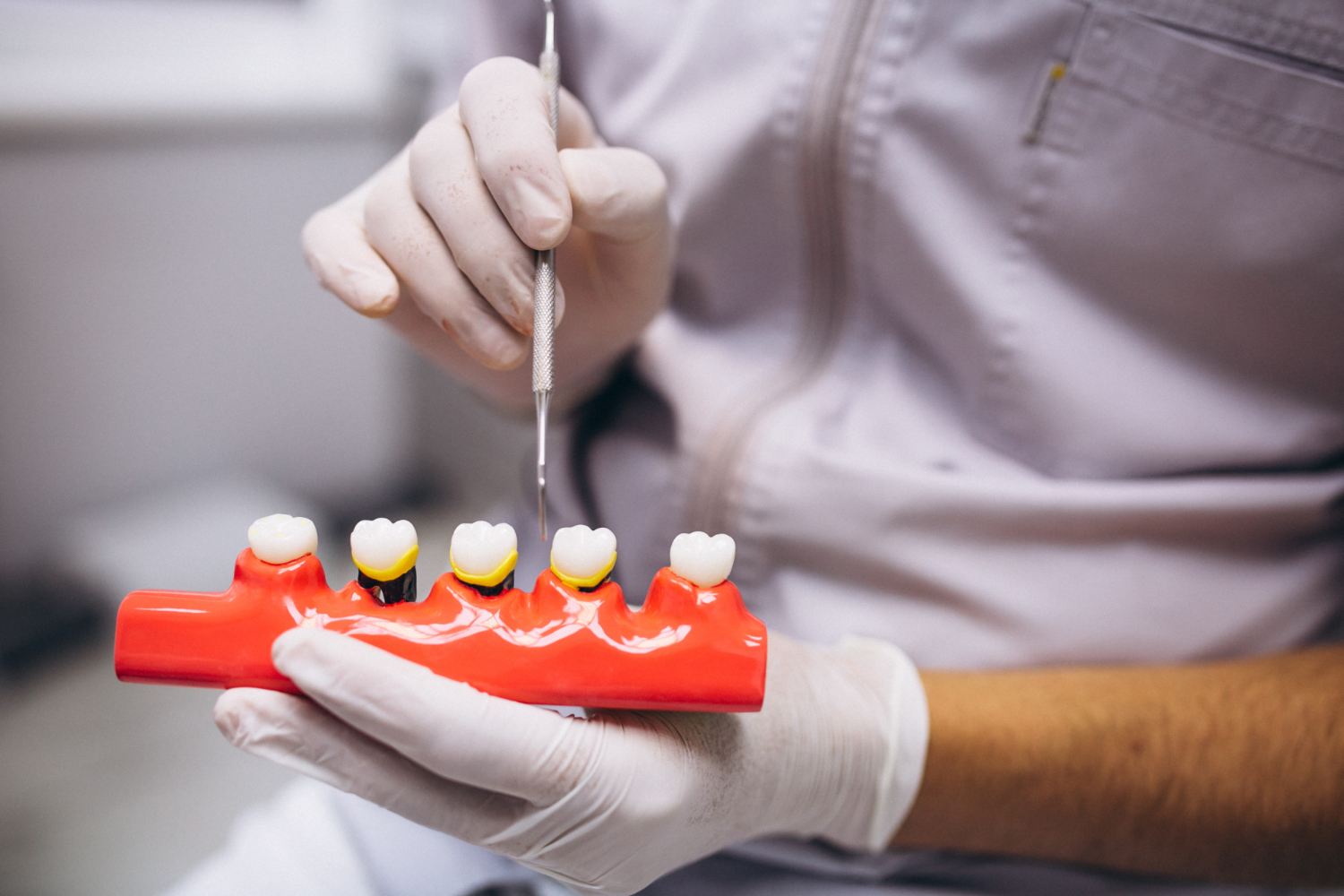 Now
Now
Dental implants offer a great solution for replacing missing teeth. Unlike other treatments that rely on adjacent teeth for support, implants function independently, much like a natural tooth.
A dental implant is like a tiny screw, resembling the size of a natural tooth root. When it’s placed into the jawbone, your body merges with the implant surface, making the restoration a permanent part of your smile.
Each dental implant procedure requires careful, thorough planning. Rushing the process can lead to incomplete integration and potential failure. However, with proper preparation, dental implants are widely considered the best option for replacing missing teeth.
Here are some key points about implants:

For successful dental implants, strong and healthy bone is crucial for support. Factors like sinus structure, age, smoking history, diet, and overall health influence candidacy. A thorough medical screening helps identify potential risks. Weak bone density, possibly due to factors like smoking or tooth loss, might require a bone graft. A CBCT scan assesses oral anatomy and bone density to ensure safe implant placement.
During assessment, we tailor implant options to your needs. Every case is unique, requiring individualized treatment. If your case is complex, we may refer you to a specialist for implant placement.
After tooth extraction, we may place a dental implant on the same day, but typically, it occurs a few months later to ensure complete healing of the mouth and bone.
Following implant placement, we allow 3-6 months for full integration of the bone and gum tissue with the implant. It’s crucial to wait for this integration to avoid placing undue pressure on the implant. Once integration is confirmed, we uncover the top of the implant and attach a custom-made restoration. Each restoration is crafted in a lab to ensure the best aesthetics, color matching, and functionality.
Getting a dental implant is usually done with local anesthesia, and deeper sedation is typically not needed. We’ll guide you through the recovery process to ensure you experience minimal discomfort once you’re home. Expect about a week of recovery time before you can return to work.
The key to ensuring the long-term success of your dental implants is to follow a consistent home care routine. Make sure to brush and floss around your implants every day, just like you would with natural teeth. Although implants themselves cannot decay, it’s important to prevent gum infections or bone loss around them, which could cause the restoration to fail.
Regular checkups and cleanings every 3-6 months are also essential. Our dental team uses special instruments to clean your implants safely, reducing the risk of buildup and gum infections.

Reserve your consultation today to explore whether dental implants are the right choice for you. We’re here to address any inquiries you might have!
Considering any surgery or invasive procedure? It’s wise to consult another licensed medical expert before making a decision—your safety matters.
Copyright © 2024 Radiant Smiles Dental Bundoora, All rights reserved. Website design by Webco


